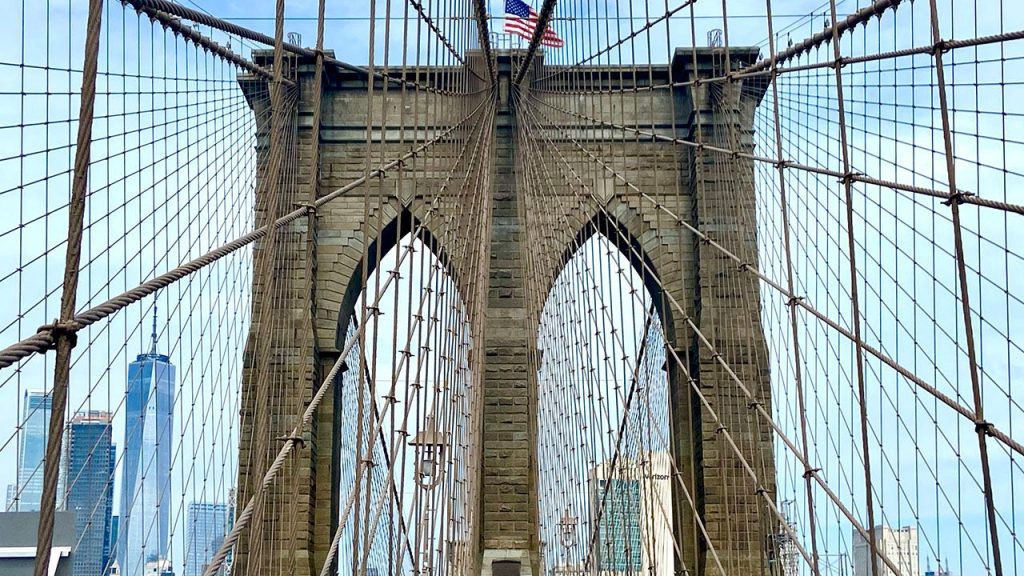On May 24, 1883, the Brooklyn Bridge officially opened as the longest suspension bridge in the world, connecting the boroughs of Manhattan and Brooklyn. Designed by John A. Roebling, construction on the bridge began in 1869 and took 14 years to complete. The opening was met with great fanfare, with thousands of people gathering to witness the dedication led by President Chester Arthur and New York Gov. Grover Cleveland. The event included a celebratory crossing of the bridge by Emily Roebling, the wife of the chief engineer who played a crucial role in the construction of the bridge.
The Brooklyn Bridge was considered a marvel of civil engineering at the time, spanning the swift waters of the East River and rising high enough to allow tall ships to pass beneath. The construction of the bridge was not without its challenges, with over a hundred workers suffering from decompression sickness due to working under high-pressure conditions in the bridge’s foundations. Despite these risks and other accidents, the bridge was successfully completed and hailed as “The Eighth Wonder of the World.”
One of the key figures in the completion of the Brooklyn Bridge was Washington Roebling, who took over as chief engineer after his father’s death. Despite contracting decompression sickness during the construction, Washington’s wife, Emily, stepped in to oversee the project and became the first female field engineer. Emily worked diligently to ensure the bridge’s completion and was respected for her technical knowledge and leadership on the project. The iconic bridge was designated a National Historic Landmark in 1964 and a National Historic Civil Engineering Landmark in 1972.
Between 1944 and 1954, a comprehensive reconstruction of the Brooklyn Bridge took place to strengthen the trusses, install new cables, widen the roadways, and construct new approach ramps. The bridge continues to be a vital transportation link, supporting six lanes of vehicles, as well as a shared pedestrian and bicycle path. Each day, thousands of pedestrians, cyclists, and vehicles cross the bridge, making it a bustling thoroughfare in New York City. In September 2021, a new two-way protected bike lane was opened along the Brooklyn Bridge to accommodate the growing number of cyclists using the bridge.
The Brooklyn Bridge remains a symbol of engineering excellence and a beloved landmark in New York City. Its history is a testament to the dedication and perseverance of the engineers, workers, and leaders who brought this monumental project to fruition. As one of the oldest and most iconic bridges in the United States, the Brooklyn Bridge continues to attract visitors and residents alike with its stunning architecture and rich history. Its legacy as a vital transportation hub and cultural icon is a testament to the enduring impact of this remarkable structure.













